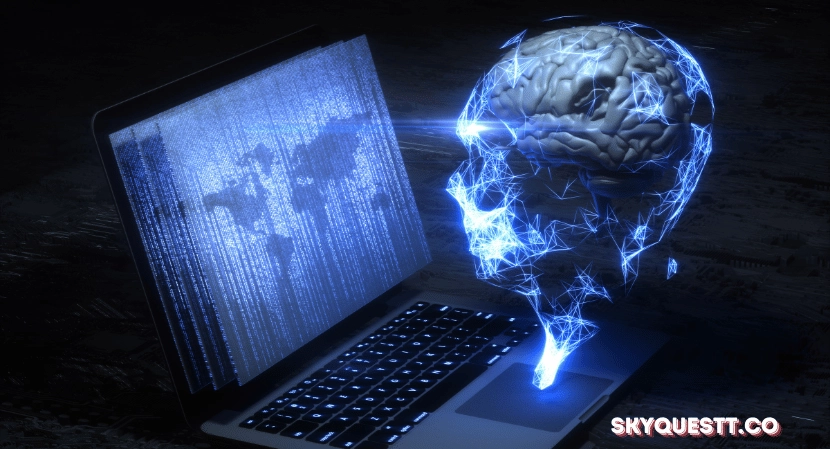
Artificial Intelligence (AI) has evolved from a theoretical concept to a powerful tool that is reshaping industries and everyday life. Its roots can be traced back to the mid-20th century, but recent advancements in machine learning, data analytics, and computational power have propelled AI into the mainstream. Today, AI impacts numerous sectors, including healthcare, finance, education, transportation, and entertainment, fundamentally changing how we interact with technology and each other.
Understanding Artificial Intelligence
At its core, AI refers to the simulation of human intelligence in machines programmed to think and learn. The field encompasses various subfields, including machine learning, natural language processing, robotics, and computer vision. Machine learning, a critical component of AI, enables systems to learn from data and improve their performance over time without being explicitly programmed.
AI systems are categorized into two types: narrow AI and general AI. Narrow AI, also known as weak AI, is designed to perform specific tasks, such as facial recognition or language translation. In contrast, general AI, or strong AI, aims to replicate human cognitive abilities across a wide range of tasks. While we have made significant strides in narrow AI, achieving true general AI remains a long-term goal.
The Evolution of AI
The journey of AI began in the 1950s with pioneers like Alan Turing, who proposed the concept of a “universal machine” capable of simulating any human intelligence. The 1956 Dartmouth Conference marked the formal birth of AI as a field of study, where researchers gathered to discuss the potential of machines to mimic human behavior.
During the following decades, AI research faced several challenges, often referred to as “AI winters,” periods characterized by reduced funding and interest due to unmet expectations. However, breakthroughs in algorithms, increased computational power, and the availability of large datasets have reignited interest in AI since the early 2000s.
Applications of AI in Various Industries
- Healthcare AI is revolutionizing healthcare by improving diagnostics, personalizing treatment plans, and streamlining administrative processes. Machine learning algorithms analyze medical images, such as X-rays and MRIs, to detect anomalies more accurately than human radiologists. AI-driven predictive analytics can also identify patients at risk of developing certain conditions, enabling early intervention.Moreover, AI-powered chatbots provide immediate assistance to patients, answering questions about symptoms and treatment options. Telemedicine platforms utilize AI to analyze patient data and recommend appropriate healthcare providers, making healthcare more accessible.
- Finance The finance sector has embraced AI for its ability to analyze vast amounts of data and make informed decisions. AI algorithms detect fraudulent transactions by monitoring patterns and anomalies in real-time, enhancing security for banks and consumers. Robo-advisors use AI to create personalized investment strategies based on individual financial goals and risk tolerance.Additionally, AI assists in credit scoring, enabling lenders to assess borrower risk more accurately. By analyzing historical data, AI models can predict creditworthiness, streamlining the loan approval process and reducing biases inherent in traditional methods.
- Transportation AI is a driving force behind the development of autonomous vehicles. Companies like Tesla, Waymo, and Uber are leveraging AI to create self-driving cars that can navigate roads, recognize obstacles, and make decisions in real-time. These vehicles use a combination of sensors, cameras, and machine learning algorithms to understand their environment and improve safety.Beyond self-driving cars, AI enhances logistics and supply chain management. AI algorithms optimize routes for delivery trucks, reducing fuel consumption and improving efficiency. Additionally, predictive analytics can forecast demand, allowing companies to manage inventory more effectively.
- Education AI is transforming education by providing personalized learning experiences. Adaptive learning platforms use AI algorithms to assess students’ strengths and weaknesses, offering tailored resources and recommendations to improve their learning outcomes. This individualized approach helps students progress at their own pace and enhances engagement.Moreover, AI-powered virtual tutors can provide assistance to students outside the classroom, answering questions and offering explanations on various subjects. Educational institutions are also utilizing AI for administrative tasks, such as grading and enrollment management, freeing up educators to focus on teaching.
- Entertainment The entertainment industry has integrated AI to enhance content creation and consumption. Streaming services like Netflix and Spotify use AI algorithms to analyze user behavior and preferences, providing personalized recommendations for movies, shows, and music. This personalization has transformed how audiences discover content.In content creation, AI is being utilized to generate scripts, compose music, and even produce artwork. For instance, AI-generated music can adapt to the listener’s mood, creating unique soundtracks for various activities. This technology is pushing the boundaries of creativity and collaboration between humans and machines.
Ethical Considerations and Challenges
Despite its numerous benefits, the rise of AI brings ethical considerations and challenges that must be addressed. One of the primary concerns is the potential for bias in AI algorithms. If the data used to train AI systems reflects societal biases, the algorithms may perpetuate discrimination in areas such as hiring, lending, and law enforcement.
Privacy is another critical issue. The collection and analysis of vast amounts of personal data raise concerns about surveillance and data security. Striking a balance between innovation and protecting individual privacy rights is essential as AI continues to develop.
Additionally, the impact of AI on employment cannot be ignored. Automation may displace jobs in certain industries, leading to workforce displacement and economic inequality. Preparing the workforce for this transition through education and retraining programs is crucial to mitigate potential negative effects.
The Future of AI
The future of AI is both exciting and uncertain. As technology continues to evolve, we can expect AI to become increasingly integrated into our daily lives. Future advancements may lead to the development of more sophisticated general AI, capable of performing tasks across various domains with human-like intelligence.
Collaboration between humans and AI will likely become the norm, as AI systems assist with complex decision-making and enhance productivity. The potential for AI to address global challenges, such as climate change, healthcare access, and poverty, is immense. AI-driven solutions can optimize resource management, enhance disaster response, and improve access to education and healthcare.
However, realizing the full potential of AI requires a thoughtful approach that prioritizes ethics, transparency, and accountability. Policymakers, researchers, and industry leaders must work together to establish guidelines and regulations that ensure AI is developed and deployed responsibly.
Future Outlook
Artificial Intelligence is no longer a futuristic concept; it is a reality that is reshaping our world. Its applications in healthcare, finance, transportation, education, and entertainment illustrate its transformative power. While the rise of AI presents numerous benefits, it also brings challenges that must be addressed to ensure its responsible use.
As we move forward, embracing AI’s potential while navigating its ethical implications will be crucial. By fostering collaboration, innovation, and accountability, we can harness the power of AI to create a better, more equitable future for all. The journey of AI is just beginning, and its impact on society will undoubtedly continue to grow in the years to come.






